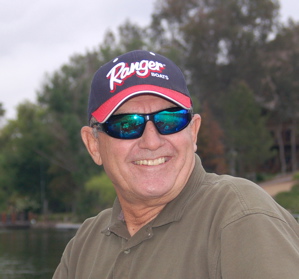 It’s probably a futile gesture, but a topic I always wanted to tackle was relativity.
It’s probably a futile gesture, but a topic I always wanted to tackle was relativity.
No. I don’t mean the E=Mc2. You can ask my wife. She says I have nothing in common with Einstein.
But in bass fishing, the long progression of advancements in knowledge, method, equipment and marketing of the sport seems to have passed by yet another generation of bass anglers. And while I don’t think you can necessarily teach appreciation for what has brought us to this point, perhaps a little awareness of the past wouldn’t hurt.
One case in point would be the career of John Powell of Montgomery, Alabama who died on Oct. 7 at the age of 78. Powell was a Korean War and Vietnam Air Force vet, but he was also one of the earliest figures in tournament bass fishing.
When I got my first B.A.S.S. patch around 1969, John Powell was as big as Bill Dance and actually preceded Roland Martin in elite status among the tournament pros as a contemporary of Tom Mann and Forrest Wood. He won three BASS events in his career, qualifying for the Classic 6 times. But more than that, in that era his numbers were exceptional, earning 16 top 10 finishes, 32 top 20’s and 46 top 50’s in all.
Furthermore, there was no gradual working his way up through the pro ranks. Powell won the first ever tournament held on Lake Eufaula, Alabama with 132 pounds—for three days! And no, he didn’t walk away with the title; he had only a 2-pound advantage over the runner-up.
Today’s fisherman might find it remarkable that Powell won without a single graphite rod, probably no rod over 5 ½ feet in length, nor fluorocarbon line, nor 100-horse outboard, or even a $100 Japanese rip bait. But he wasn’t without some of the specialized amenities of the era. He competed with a 12-volt trolling motor, mushroom anchors and a flasher sonar.
Powell had the highest respect of his angling peers and a national audience that read of his exploits in Bassmaster Magazine. Yet none of his titles ever earned him more than $3000, and throughout his entire career he compiled less than $35,000 in cash winnings.
It’s no wonder that Don Butler, winner of the second Bassmasters Classic in 1972, was fond of saying, “No one ever won a dime in professional fishing.” Because for a long, long time, that was the case.
Powell, of course, like Butler, was a friend of Ray Scott, the B.A.S.S. founde,r and during the 1970’s Powell joined Scott and Martin, on a national seminar tour that reached all the way to California. Powell was known as a shallow water fisherman, and the joke of the era was, he could be found fishing a “tire rut” after a rain shower.
Still, (and my memory isn’t what it used to be) my favorite Powell account followed a 1971 win, I believe at Toledo Bend, but maybe Table Rock. Winds were a problem during the contest, and his standard method of Texas-rigging a 6-inch, purple with a yellow tail Crème Scoundrel, was not letting him get his bait down to the fish.
While your tackle box today probably holds half a dozen solutions to this problem, the innovative things you know about had yet to be devised or were yet to be exposed across the country. Powell only had what he had, so he improvised. To beat the wind, he ended up sliding four bullet sinkers on the line to get the bait down—and it worked.
No, I’m not lobbying that we go back to fiberglass rods with pistol grip handles. We’re past that. But it’s not what you have to use that sets you apart. It’s what you do with what you have.
That’s why I still remember John Powell.


 Advertising
Advertising